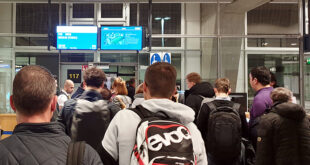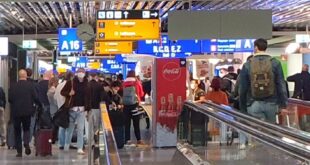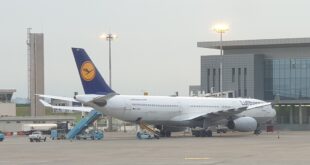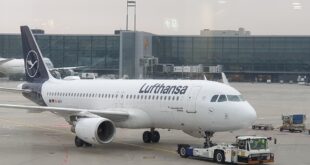Highly contagious variants of the coronavirus from Brazil and South Africa are spreading in Austria, France and the Czech Republic and causing concerns Germany. Entry checks will be stricter as from Sunday at German borders with neighbouring countries due to new travel restrictions introduced by government to check the spread of the more dangerous coronavirus mutations.
Federal Interior Minister Horst Seehofer has reiterated that the rules for entering Germany, in force from Sunday (14 February), will be strictly controlled.
Those entering the country would have to present a negative coronavirus test, the minister reiterated. This also applies to all truck drivers, he added.
Why the entry rules were tightened
Coronavirus mutants are currently spreading in the Czech Republic and the Austrian province of Tyrol.
In Tyrol there are more cases of the South African Sars-CoV-2 virus variant B.1.351 and in the Czech Republic it is the British variant B.1.1.7.
Both mutants are considered to be significantly more contagious. According to scientists, the South African variant is also more deadly – and in addition, some vaccines are less effective against it. Even people who have already had coronavirus infection can probably become infected again, warn medical experts.
Restrictions at the border with Czech Republic and Tyrol
Stricter entry rules come into force at the borders with the Czech Republic and the Austrian province of Tyrol on Sunday night. For fear of the more contagious variants of the coronavirus there spreading to Germany, there will be strict controls at the corresponding border crossings in Bavaria and Saxony.
Who is allowed to enter Germany from the Czech Republic and Tyrol?
According to a directive of the Federal Ministry of the Interior, only German nationals with their spouses and underage children and foreigners with residence permit in Germany are allowed to enter from the affected areas.
There are exceptions for truck drivers, doctors, nurses and geriatric nurses as well as seasonal agricultural workers.
Those who want to attend the funeral of a parent, spouse or child are also allowed to enter, as are fathers for the birth of their children. You can also cross the border for urgent medical treatment with a doctor’s certificate.
For all those entering the country, they must show a negative coronavirus test result and spend ten days in quarantine in Germany. The tightened entry regulations are initially limited to ten days, i.e. they apply until 23 February. However, they can be extended to a maximum of three months.
The stricter rules for entry from the Czech Republic and the Austrian province of Tyrol will probably affect tens of thousands of commuters, among others. According to the Federal Employment Agency (Bundesagentur für Arbeit or BA), around 45,000 workers in Germany reside in the Czech Republic or Austria – the vast majority work in Bavaria.
In Bavaria, virus variants are already more widespread than the national average. They have been detected in significantly more than ten percent of infected persons in the federal state – more than twice as much as in Germany as a whole.
Criticism from EU Health Commissioner
EU Health Commissioner Stella Kyriakides has however criticised the German measures. “The fear of mutations of the coronavirus is understandable. But nevertheless, the truth is that the virus cannot be stopped by closed borders,” she said. “The only thing that helps against the mutations is consistent vaccination and compliance with hygiene rules. I think it is wrong for us to return to a Europe with closed borders like in March 2020.”
Sola Jolaoso
READ ALSO COVID-19: Entry rules for travellers to Germany UPDATED
 THE AFRICAN COURIER. Reporting Africa and its Diaspora! The African Courier is an international magazine published in Germany to report on Africa and the Diaspora African experience. The first issue of the bimonthly magazine appeared on the newsstands on 15 February 1998. The African Courier is a communication forum for European-African political, economic and cultural exchanges, and a voice for Africa in Europe.
THE AFRICAN COURIER. Reporting Africa and its Diaspora! The African Courier is an international magazine published in Germany to report on Africa and the Diaspora African experience. The first issue of the bimonthly magazine appeared on the newsstands on 15 February 1998. The African Courier is a communication forum for European-African political, economic and cultural exchanges, and a voice for Africa in Europe.




















